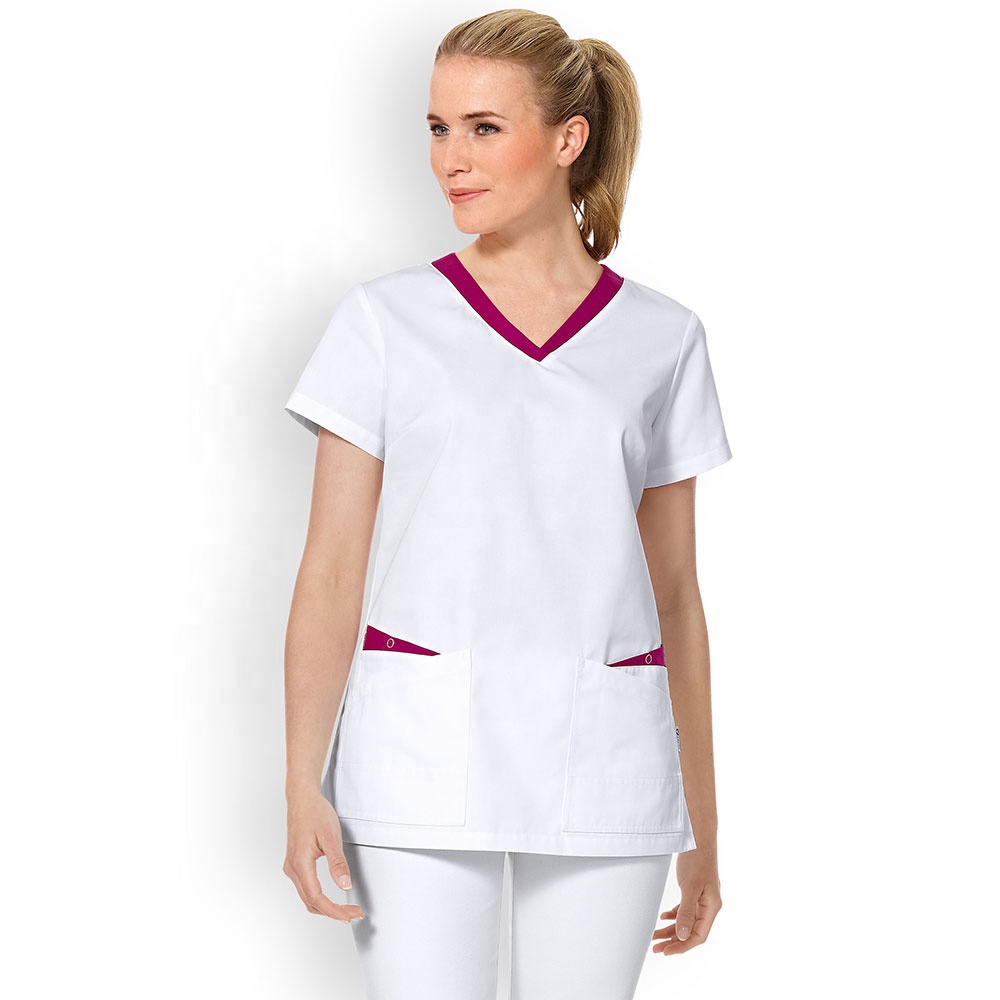Table of Contents
Introduction
Nursing scrubs have become synonymous with the healthcare profession, adorning corridors of hospitals and medical facilities across globe. These essential uniforms serve not only as a symbol of the healthcare workforce but also as a crucial tool in maintaining hygiene and professionalism. In this article, we will explore fascinating world of nurse scrubs, from their humble origins to diverse range of options available today.
What are Nursing Scrubs?
Nursing scrub is specialized garments worn by healthcare professionals, including nurses, doctors, and other medical personnel. They typically consist of a loose-fitting tunic top and matching pants, designed to provide comfort and ease of movement during long working hours. Originally, scrubs were white to signify cleanliness, but they evolved over time to adopt various colors and patterns.

Evolution of Nursing Scrubs
The concept of scrubs dates back to the early 20th century, when nurses wore white dresses and caps. However, pristine appearance was difficult to maintain, and uniforms were not as functional as required in a demanding healthcare environment. As a result, modern scrub nurse were introduced, featuring more practical designs and different fabrics.
Types of Nursing Scrubs
These are the following types of scrubs:
Traditional Scrubs
Traditional scrubs often adhere to a basic design with solid colors, providing a clean and professional look. They are favored for their simplicity and ease of maintenance.
Modern Scrubs
Modern scrubs come in a wide array of colors, patterns, and styles. Healthcare facilities now allow more flexibility in dress code, allowing medical professionals to express their individuality through their scrubs while still maintaining a professional appearance.
Choosing the Right Nurse Scrubs
When selecting nurse scrubs, several factors should be considered:
Comfort and Fit Scrubs
Since medical professionals spend extended periods in scrubs, comfort and fit are paramount. Properly fit scrubs enhance mobility and prevent discomfort during long shifts.
Fabric and Durability
The choice of fabric can significantly impact durability and functionality of scrubs. Breathable and stain resistant fabrics are preferred for their longevity.
Color and Style

Healthcare facilities may have specific color codes for their staff, but within those guidelines, professionals can still choose a style that suits their preferences.
Pockets and Functionality
Nursing scrubs should have ample pockets to carry essential medical tools and personal belongings, ensuring convenience and efficiency on the job.
Taking Care of Nurse Scrub
Proper care ensures longevity of nurse scrubs. Washing them separately from other clothing and using gentle detergents can preserve their color and fabric quality.
Impact of Scrub Nurse on Patient Care
Scrubs play a role beyond aesthetics. They contribute to patient care by establishing a sense of professionalism and cleanliness, promoting patient trust and confidence in the healthcare provider.
Nursing Scrub as a Fashion Statement
In recent years, scrubs have transcended their functional purpose and become a fashion statement. Medical professionals embrace stylish and unique scrubs to showcase their personalities.
Eco-Friendly Scrub Options
As sustainability gains importance worldwide, eco-friendly nurse scrubs made from organic and recycled materials are becoming more prevalent, reducing the healthcare industry’s ecological footprint.

The Future of Nursing Scrub
Advancements in fabric technology and design are shaping future of scrub nurse. Expectations include smarter, more functional, and even more stylish options.
Cost-Effective Options

Nurses on a budget can find cost effective scrubs without compromising on quality. Many brands offer affordable options that are durable and comfortable for everyday use.
Conclusion
Nurse scrubs have evolved from simple uniforms to symbols of unity and professionalism in the healthcare industry. By choosing the right material, fit, and design, nurses can enjoy both comfort and functionality during their demanding shifts. Embracing scrubs as an integral part of their identity, nurses can take pride in their profession and create a positive environment for both themselves and their patients.
FAQs
Is nursing scrub only worn by nurses?
While nursing scrub is most commonly associated with nurses, other healthcare professionals, such as doctors, surgical technologists, and dental hygienists, also wear them.
Can scrubs be personalized?
Yes, many brands offer personalized scrubs, allowing healthcare professionals to add their names, titles, or facility logos to the garments.
How often should I replace my nursing scrub?
On average, nursing scrub should be replaced every 6 to 12 months, depending on wear and tear.
Can nursing scrub be worn outside of the healthcare setting?
While nursing scrub are designed for the healthcare setting, some people choose to wear them as comfortable loungewear or sleepwear.
What are antimicrobial scrubs?
Antimicrobial scrubs are treated with special agents that inhibit the growth of bacteria, reducing the risk of contamination and infections.




